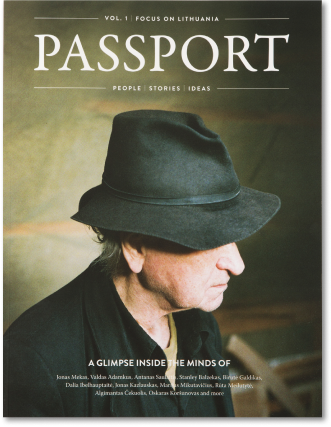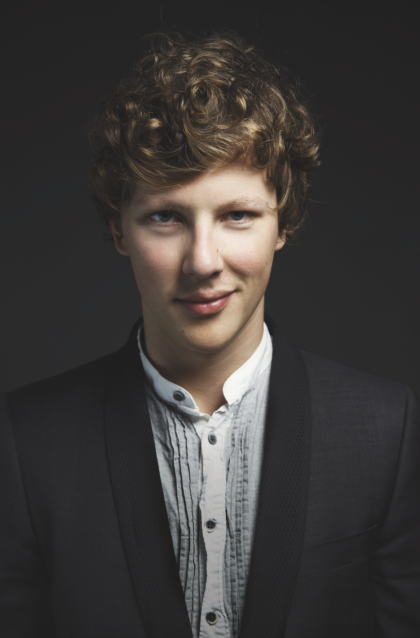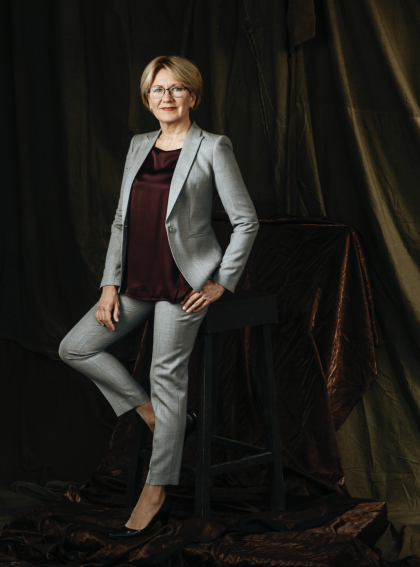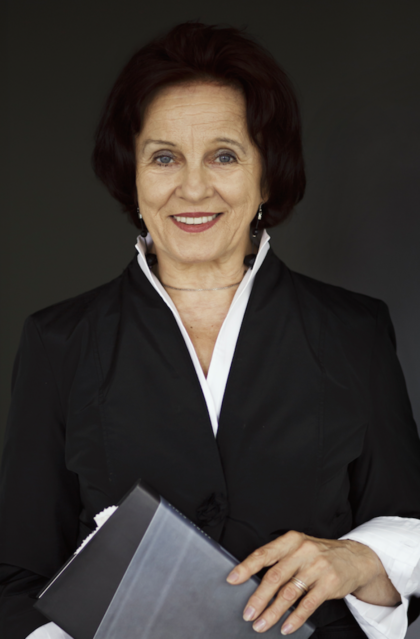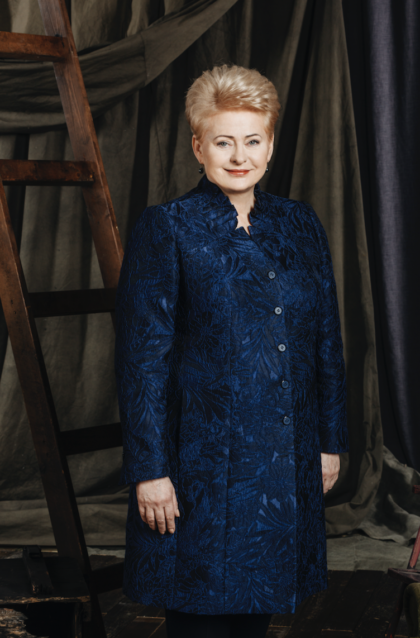Record producer, composer, lecturer
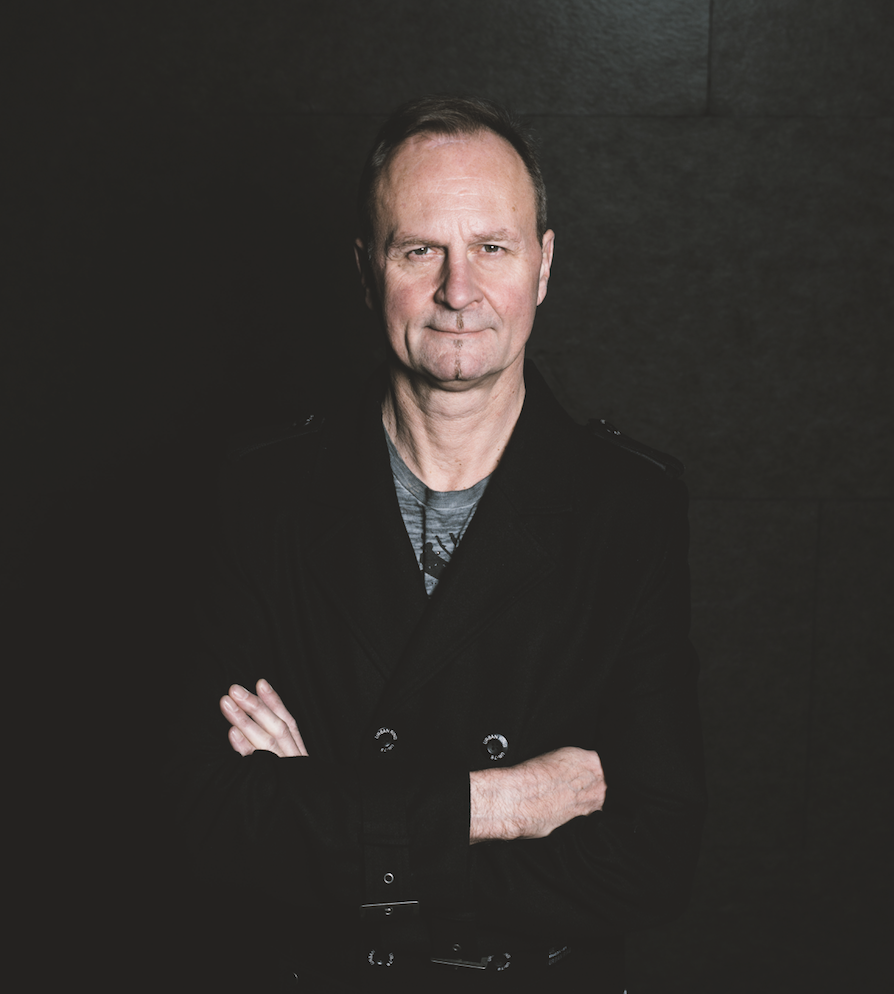
I don’t feel fulfilled unless I feel like my work is having a positive effect on the people around me.
Gediminas Zujus
My childhood was quite different than those of my peers. We would run around chasing a ball, riding bicycles and climbing trees together, but once my mother rang a bell, I had to run to take piano lessons. Suddenly, the smells and sounds of hot pavement, bicycle tires, dust and childish laughter changed to silence, serenity, floor wax and the musty, naphthalene scent of the piano.
I discovered that concentration and these first sounds blended like thunder and had the power to transform me – to transport me to a different plane, one of rhythm and sound. I communed with that world through the keys of the piano. At first, it was like a game. During our breaks, my mother would open a closet distinguished by its unforgettable smell of vintage vinyl records. A multitude of worlds lived within: Peer Gynt, Peter and the Wolf, The Carnival of the Animals, etc. It seemed that the gramophone stylus would narrow its eyes and smile at me, fizzing “Tshh…” before the stylus dipped into the record’s world, and then, from the depths of the brown box, the story would emerge.
Everything became more serious when I was admitted to a school of the arts; here the familiar smells of floor wax and naphthalene were supplemented by parquet and marble, and the grand pianos growled in lower tones than the lions at the Kaunas Zoo. There were also violins and cellos, but they squeaked loudly when the fiddlers drew the bows across the strings… Concerts, exams, gamuts, études, other concerts, a contest in the fourth grade, another in the sixth grade… I had lost a fingertip, and it was difficult to adapt at first, so there were times when I played 14 hours per day. I was exhausted. Finally, I became a laureate, but it was only because I practiced so much.
My passion for playing died down a bit because I became restless; I wanted to explore uncharted territories, meet new people, and try unfamiliar things. A storm arose, one that continues to this day, albeit in a different form. The wayward journeys, travel by freight train, hitchhiking and stunt flying of my youth transformed into worldwide concert tours, while my amateur experiments with radio and sound engineering evolved into the first private professional recording studio in Lithuania.
My family is patriotic to the core. Throughout my childhood, my home was the site of many underground meetings during which we hosted historians, photographers, and authors. In hindsight, I realize that none of this was allowed under the Soviet regime, and that the repercussions had we been caught would have been severe for all parties involved. But there on my childhood wall hung the Lithuanian coat of arms I made with my own two hands, my very own Vytis. And my mother’s mother, my bobutė, worked for the Red Cross for many years, trying to rescue Lithuanian, Polish, and Jewish families from exile. Alas, she too was eventually exiled to Siberia. You know, for a long time I didn’t even know that my mother’s sister, Aldona Brazdžionienė, was famed poet Bernardas Brazdžionis’ wife. You could say that patriotism simply runs through my veins.
There were so many secrets during those grim times. To this day, I find it hard to believe that as my classmates and I were playing our instruments in the auditoria of the music conservatoire, we sitting less than 50 meters away from the cellars of the KGB headquarters, where the Soviet secret service tortured and shot our nation’s most prominent, learned, loyal people.
My mother always wanted to protect me; she didn’t even tell me our entire family history until I was an adult. That was just one way she tried to protect me from the KGB, which was continuously following her, for several times she had been reprimanded by the administrators for questionable behavior. Because she taught musical literature at the art school, my mother not only cardinally influenced our musical taste but also gave us space to develop our patriotism and fostered our desire for freedom. In her class, we secretly listened to music forbidden by the Soviets, and at her bidding we began to attend jazz concerts. The Ganelin Trio was one of my favorites – it was like a spiritual awakening.
My motivation is also my weakness: when I fantasize, I set complex and hardly achievable goals. Perhaps this trait was inherited from my parents? Nevertheless, reaching for these dreams is an exhausting and sometimes disruptive exercise. It provides neither financial stability nor moral fortitude, and sometimes I even question my commitment. However, that is when I remember that I must not look to the past or the future, but instead must be mindful and live in this moment, this present, and must do the best work possible.
Music was always my first choice. Sure, I rarely play grand piano, but I allocate more time to composing music, sound design, and producing. These fields entice me because they determine what the end product will sound like and how the listener will interpret it. Music is meant to be felt.
Yes, I hear the notes and I have perfect pitch.
Unfortunately, sometimes hard-working and reasonable people don’t always feel happy and fulfilled. Maybe their lives lack risk or adventure in its best sense. Personally, I have too much risk and adventure inside of me; perhaps this is why I feel so scattered and unfulfilled. With so many possibilities and oddities in the world, how on earth can it be possible to sit and concentrate on just one thing? I find this so very, very hard to do.
I will always remember 1985, my friends and I opened Lithuania’s first private professional recording studio, which was a huge gamble during the Soviet era. We started in a windowless cellar four meters deep. My father, through his work, had provided the space for us, so we all risked our necks together. Now I can look back on those times with a smile, for those were the days I made my dreams come true.
I like to take risks. Don’t ask me why. It’s just the way I am.
Recognition is a funny thing. It can be nice, but it has absolutely nothing to do with art. You simply have to live the life for which you feel a calling.
The older you get, the more you realize you don’t know.
Young people need to understand that reality shows are just illusions. It is very painful to see young people accept this game as truth and then get disappointed or, on the contrary, over-inflate their egos. It’s all a facade; there is no truth here. Cash is still king and you, young person, usually won’t end up on top.
My children taught me about diplomacy, especially my 10 year-old son. He mastered this art during his not-too-long, yet not-too-easy, chock-full of reality lifetime.
I don’t feel fulfilled unless I feel like my work is having a positive effect on the people around me.
When traveling to foreign countries, I make a point of hanging out with locals as much as possible. I want to learn about the morals and values of their country through their own eyes. These change from place to place – from the favelas of Brazil to the highest skyscrapers of a metropolis, and over to the necropolis of Cairo’s City of the Dead.
Contrasts. They allow me to feel the infinite diversity of the material and spiritual worlds. Feeling the friction between these spaces brings me joy.
I truly respect artists like Veronika Povilionienė and Petras Vyšniauskas. They don’t publicize themselves, but instead just live among us. Perhaps we don’t recognize the greatness of the people around us as much as we should.
I’m inspired by complex dreams, ones that require perseverance and improvisation to be finally realized. And that improvisation itself is a type of composition that is made “here and now.” In that sense, life is a type of composition as well, and I couldn’t imagine living without this spirit of creation.

